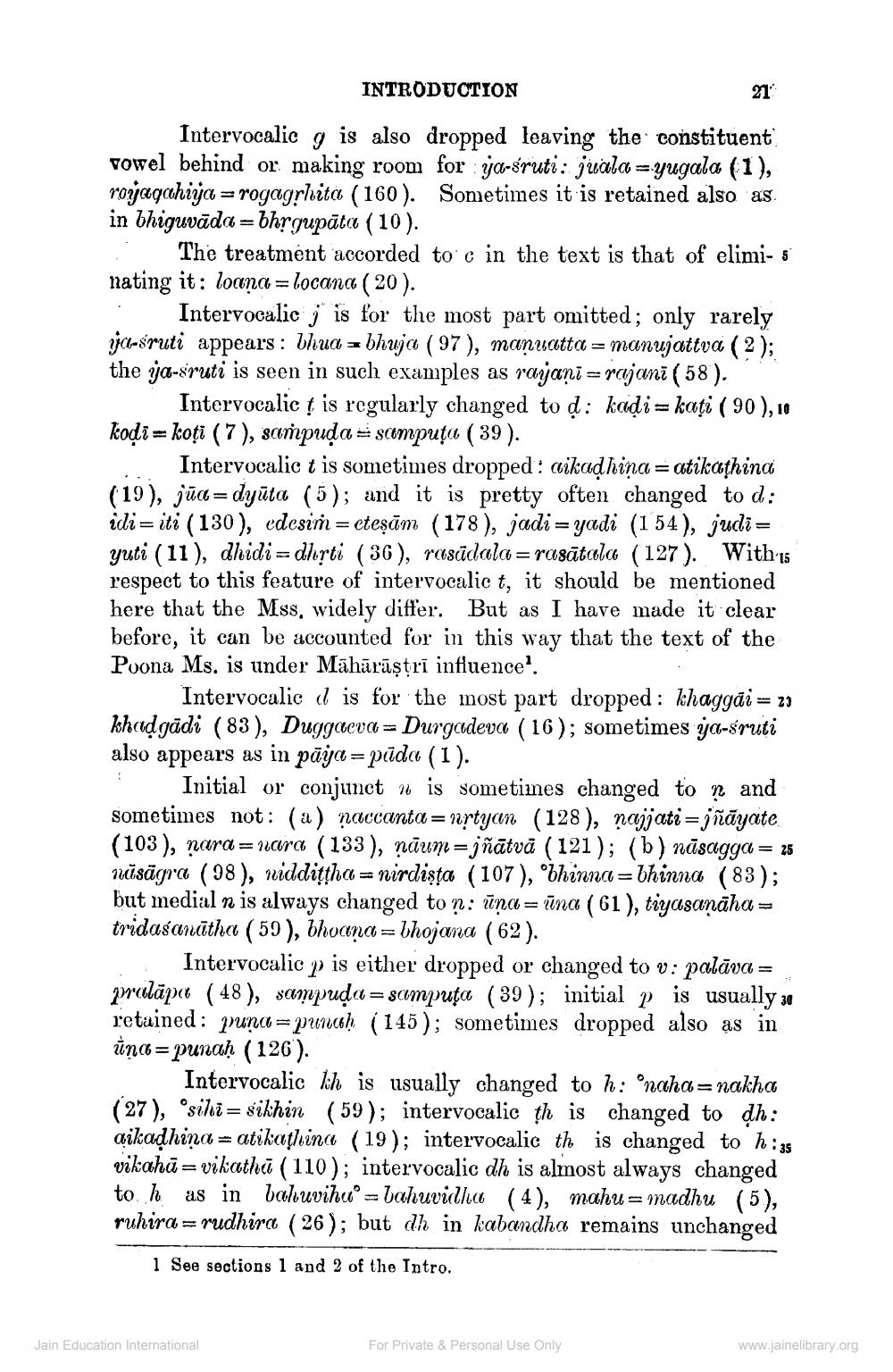________________
INTRODUCTION
21 Intervocalic g is also dropped leaving the constituent vowel behind or making room for ja-sruti: juala=yugala (1), rojagahija = rogagshita (160). Sometimes it is retained also as in bhiguvāda = bhrgupāta (10). : The treatment accorded to c in the text is that of elimi- 5 nating it: loana = locana (20).
Intervocalic j is for the most part omitted; only rarely jc-sruti appears : Dhua - bhuja (97), manuatta = manujattva ( 2 ); the ja-sruti is seen in such examples as raijani = rajani ( 58).
Intervocalic ţ is regularly changed to d: kadi = kați ( 90 ), 10 koại = koți (7), sampuda=scomputa ( 39 ).
Intervocalic t is sometimes dropped: aikadhiņa = atikathina (19), jūardyūta (5); and it is pretty often changed to d: idi=iti (130), edesim=cteşām (178), jadi =yadi (1 54), judi= yuti (11), dhidi = dhrti (36), rasadala=rasātalo (127). With-15 respect to this feature of intervocalic t, it should be mentioned here that the Mss, widely differ. But as I have made it clear before, it can be accounted for in this way that the text of the Poona Ms. is under Māhārāştrī influence'.
Intervocalic al is for the most part dropped: khaggãi = 23 khad gādi (83), Duggacva = Durgadeva ( 16 ); sometimes ya-sruti also appears as in pāja = poida (1).
Initial or conjunct » is sometimes changed to ņ and sometimes not: (a) maccanta = nrtyan (128), najjati =jñāyate. (103), nara=nara (133), nāum=jñātvā (121); (b) nāsagga = 25 ruisāgra (98), niddittha = nirdista (107), obhinna=bhinna (83); but medial n is always changed toņ: ūņa=ūna ( 61 ), tiyasanäha= tridasanatha (59), bhoana=bhojana (62).
Intervocalic p is either dropped or changed to v: palāva = pralāpa ( 48 ), sampuda = samputa (39); initial p is usually 30 retained: pruna=punoh (145); sometimes dropped also as in und= punaḥ (126).
Intervocalic lh is usually changed to h: 'naha= nakha (27), "sihi= sikhin (59); intervocalic th is changed to dh: aikadhiņa= atikațhina (19); intervocalic this changed to h : 35 vikahū==vikathe (110); intervocalic dh is almost always changed to h as in bahuvihui° = bahuvidhu (4), mahu = madhu (5), ruhira = rudhira (26); but dh in kabandha remains unchanged
1 See sections 1 and 2 of the Intro.
Jain Education International
For Private & Personal Use Only
www.jainelibrary.org




